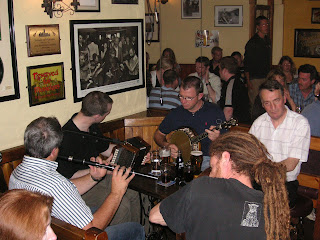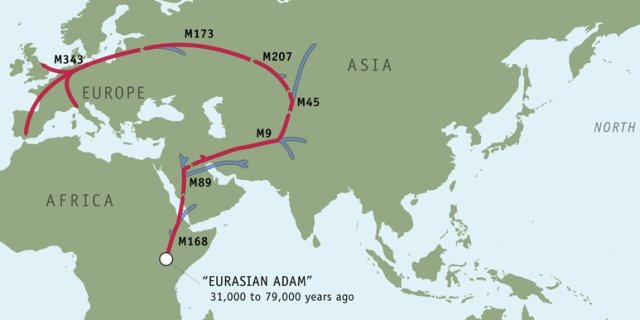That was epic. Amazing, for sure, but totally mental. I was close to exhausted before we made the first turn, and was worried that I was holding up our canoe, and didn't realize until the end that everyone else was feeling the same.
I woke up early, downed some coffee, popped an advil, and made eggs and toast for breakfast. I eat before every race, and am nervous before every race, so I should have been fine. I finished one egg and realized I was too wound up this time to eat any more. Ten minutes later I realized that even one egg had been a mistake, and that that baby wasn't going to stay down. I purged, packed my bags, and headed to the club.
It was interesting just having the six of us - no coaches, no team, just us and the boats. I wasn't sure at first how the guys felt having me in. Greg was supposed to be in, this big blond mountain of muscle, but he had registered too late & couldn't paddle this race. I was the last minute replacement. These guys have been together for years. This was my first long iron. I don't know if I was projecting my insecurity, or not - everyone was cool, but I kept wondering how they all felt about it.
Our line-up: Ramos stroke, Aweau, Jeff, Me, Yamada, Steve stearing.
We had the typical WYC start, with Ramos running down the beach to the canoe at the last minute, and the horn blowing as most of us were still in the water. We've had a couple of these moments this year - it's getting to be a tradition.
Then it was around flat island, and off to the Moku Luas. The canoes spread out, maybe forty or so, and we never passed or were passed after the first ten minutes. We could still see the lead canoes as we approached Makapu`u, so we were doing alright.
And I was dying before we even hit the fun part, the Makapu'u wall. It wasn't as big as in the Duke race, but there was still plenty of action & Greg kept us close to the wall. It's a strange feeling being that close to big waves crashing on rocks. One wrong move and we'd be wrecked. So I was thinking, how odd that we so casually place our lives in each others hands, and how much trust that takes to do it calmly. We pulled hard, and used all our muscles to get past.
Literally. I don't think I had anything left after this. We came to Alan Davis, and tried to catch a swell, but though I could move & put myself through the motions I had no power left. I thought I was a goner, then realized that no one else in the boat could muster much power either. In the Duke race we would have done our third change here, so we would all have had fifteen to thirty minutes rest for this stretch. Not today.
The rest of the race was kind of a daze. We popped the `ama high, but managed to save it without flipping. I just kept my head up, and tried to keep pace & focus on technique. It's all I could do. That, and will the boat through the water.
Next turn was Koko Head, and more rough water and rocks. Greg is an amazing steersman, and runs the canoe close to the wall. I tried to find some leftover muscle to work through this part, but it was hard. I was in and out of the zone.
Next turn, Maunalua Bay. It was calm, and a bit windy - but we could see the flag at the end. I wasn't full-on delirious, but it seemed surreal that we had actually made it. The last stretch took some time - no one had anything left. We finished in 2 hours 37 minutes - and ahead of at least four canoes. Hui Nalu came in 2:08, so I think we did pretty frakkin' good for being that close to the top team.
We went to Kona Brewing for pizza and beer after. Made it home by 3pm, just in time to shower and meet Barbara - of my neighborhood board - for dinner & politicking.
We're meeting the wahine tomorrow afternoon in Nanakuli. I'm trying to make a recipe I saw on Top Chef - savory tomato bread pudding, in little muffin tins, topped with basil cream. The recipe I have says it's enough for twenty ... but I've already made 48 muffins, there are 24 in the oven, and I have a few more rounds to go. It's gonna be a long night. I'll post the recipe - and those results - later!



















































